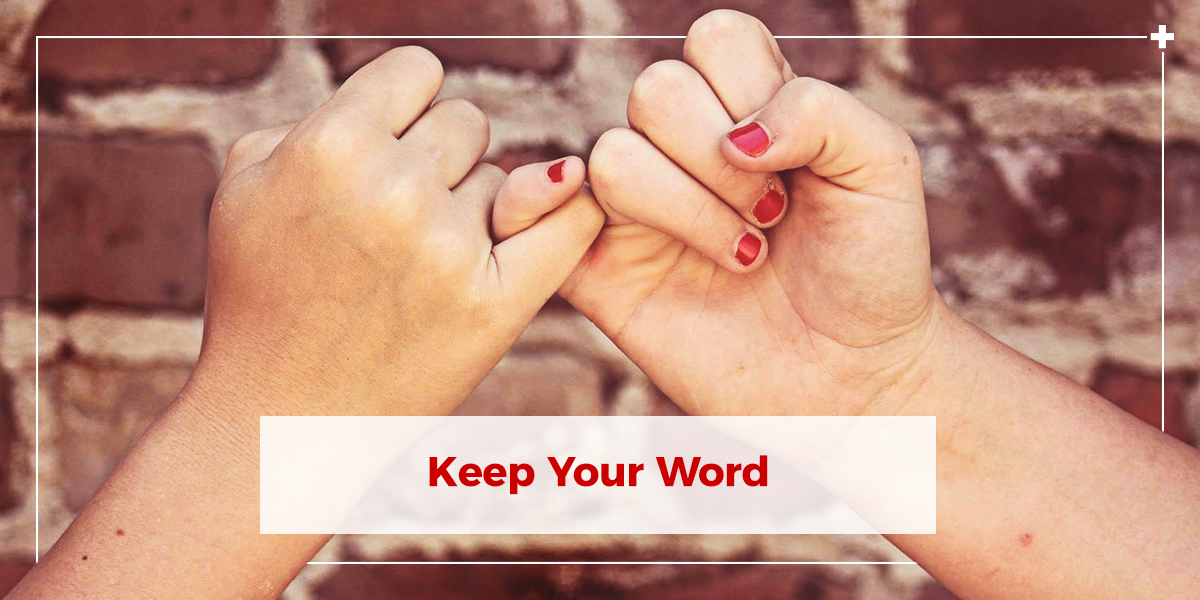
Keeping your word might read like 3 simple words, but we all know and have experienced from time to time how complex and difficult they can be. How many of us have, at various moments, either gone back on things we have said, or used a lie (white or otherwise) to bail ourselves out of a situation? While at the time such tactics may seem a lifesaver, they are actually very harmful. They slowly corrode not only others, but our own faith in ourselves.
The first casualty of not keeping your word is your integrity. Integrity is defined as the quality of being honest and having strong moral principles. Integrity is usually a defining quality of a person, for others and the person herself. A person without integrity, without some moral compass she adheres to, is usually found to be floundering along the river of life with nothing to fall back on in challenging moments.
The second casualty of not keeping your word is trust. If you keep breaking your word, soon people around you will lose their trust in you. They will know that they can’t depend on you and slowly but surely this will build walls in your relationships and diminish them. Afterall trust is one of the core foundations of any relationship.
The third casualty of not keeping your word is respect. Keeping your word is a way of showing you respect yourself and place a high value on yourself. Conversely, not keeping your word gives a signal you don’t respect yourself enough. At the same time, if people see you as often not honouring your word, they also lose respect for you. The mark of a respected person is usually the confidence people set by their word. We all have heard of that person whose yes meant a yes or a no meant a no, and the respect with which everyone spoke about them.
Not keeping your word will ultimately impact your sense of self-worth, because integrity, trust and respect are the basis of our sense of worth, and if these get eroded so will our self-worth.
So keeping one’s word is essential not only for the people around us, but also for our own sense of self. If you find yourself struggling with it, identify the situations when you tend to slip up. Check if there are some common triggers or situations which cause you to do so. Do you over commit yourself? Stop. It’s better to commit less and deliver more than to commit something and then not deliver it.
And yes, most importantly, remind yourself that your word is a reflection of yourself. It might be difficult or expensive to keep it sometimes, but the hazards of not doing so can be more expensive.


